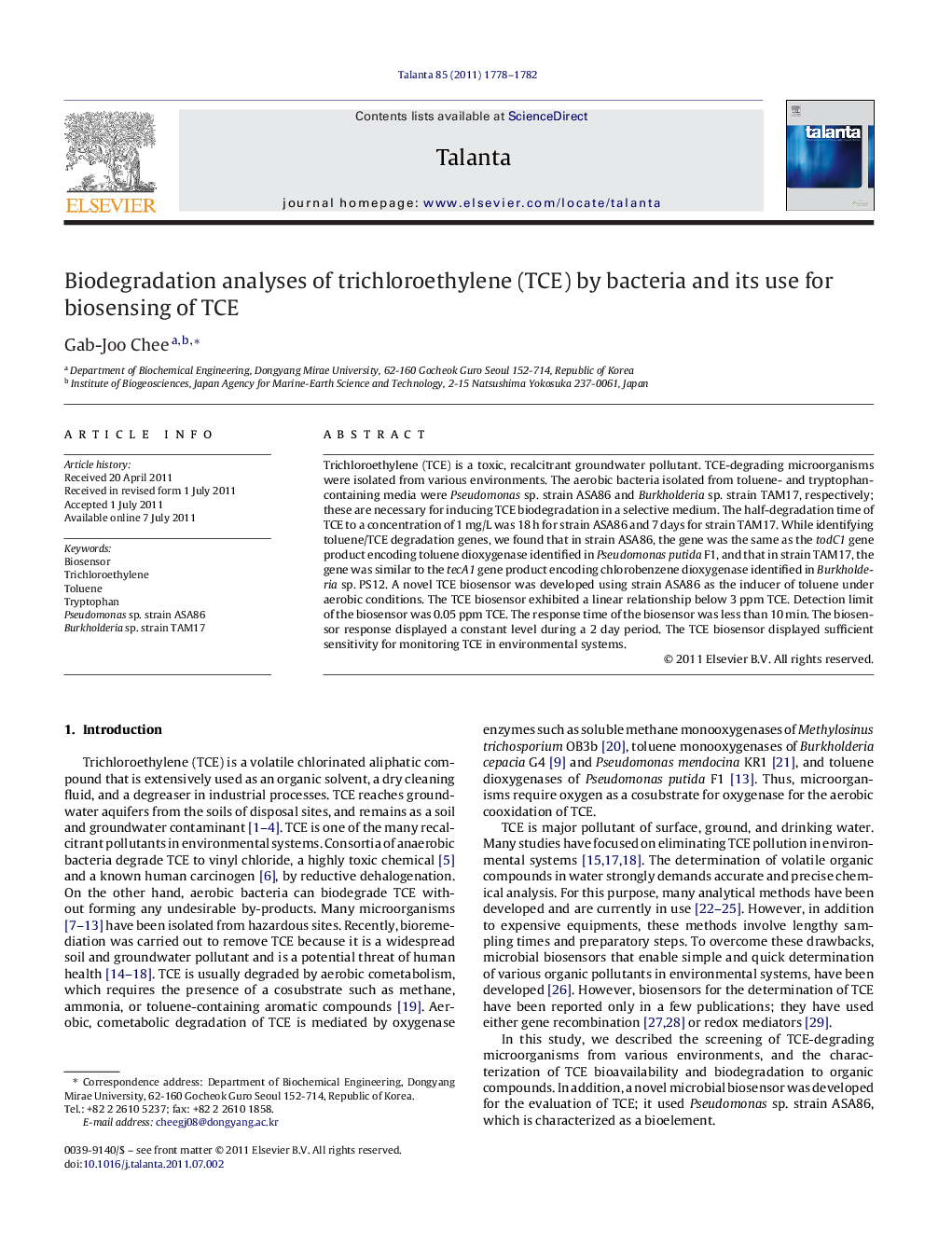| Article ID | Journal | Published Year | Pages | File Type |
|---|---|---|---|---|
| 10559457 | Talanta | 2011 | 5 Pages |
Abstract
Trichloroethylene (TCE) is a toxic, recalcitrant groundwater pollutant. TCE-degrading microorganisms were isolated from various environments. The aerobic bacteria isolated from toluene- and tryptophan-containing media were Pseudomonas sp. strain ASA86 and Burkholderia sp. strain TAM17, respectively; these are necessary for inducing TCE biodegradation in a selective medium. The half-degradation time of TCE to a concentration of 1Â mg/L was 18Â h for strain ASA86 and 7Â days for strain TAM17. While identifying toluene/TCE degradation genes, we found that in strain ASA86, the gene was the same as the todC1 gene product encoding toluene dioxygenase identified in Pseudomonas putida F1, and that in strain TAM17, the gene was similar to the tecA1 gene product encoding chlorobenzene dioxygenase identified in Burkholderia sp. PS12. A novel TCE biosensor was developed using strain ASA86 as the inducer of toluene under aerobic conditions. The TCE biosensor exhibited a linear relationship below 3Â ppm TCE. Detection limit of the biosensor was 0.05Â ppm TCE. The response time of the biosensor was less than 10Â min. The biosensor response displayed a constant level during a 2 day period. The TCE biosensor displayed sufficient sensitivity for monitoring TCE in environmental systems.
Related Topics
Physical Sciences and Engineering
Chemistry
Analytical Chemistry
Authors
Gab-Joo Chee,
